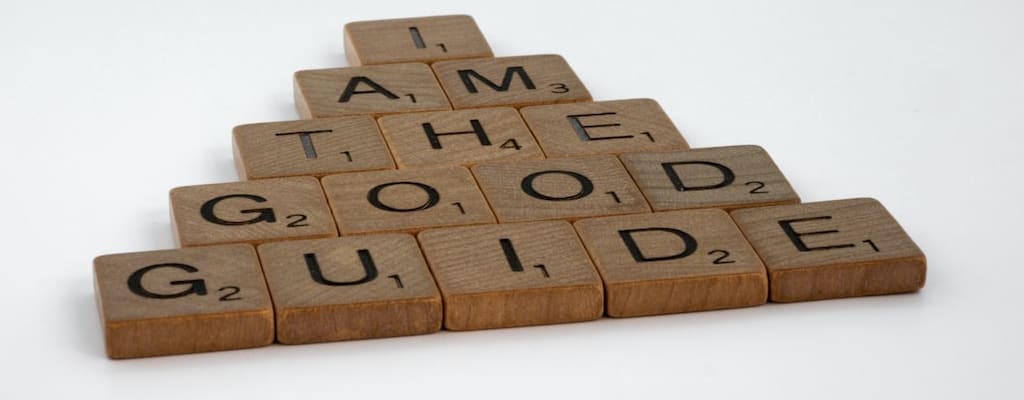fair game: Idiom Meaning and Origin
What does ‘fair game’ mean?
The idiom fair game means something or someone that is considered an acceptable target or subject for criticism, attack, or scrutiny.

Idiom Explorer
The idiom "just deserts" means to receive the appropriate punishment or reward for one's actions.
The idiom "just deserts" has a specific meaning and carries a strong connotation. It means that individuals receive what they deserve, whether it be punishment, reward, or consequences. The phrase is often mistakenly written as "just desserts," but the correct spelling is "just deserts," derived from the Middle English word "desert," meaning "what one deserves."
The idiom "in the game" means actively participating or being involved in a particular activity or situation.
The idiom "in the game" has a clear and straightforward meaning. It indicates that someone is actively involved or participating in a particular situation or activity. It implies being fully committed and ready to contribute.
The idiom "in the crosshairs" means to be the target of attention, criticism, or potential harm.
The idiom "home game" refers to a situation or event that takes place in one's own familiar environment or territory, giving a certain advantage or comfort compared to being in an unfamiliar setting.
The idiom "home game" is commonly used in American English and has a specific meaning in sports contexts. It refers to a game or match that is played on the home territory or home field of a particular team or individual.
The idiom "give the game away" means to reveal or expose a secret or hidden truth, usually unintentionally, thereby spoiling a surprise, plan, or strategy.
The idiom "give as good as one gets" means to respond with equal force or intensity when faced with aggression or criticism, not allowing oneself to be taken advantage of.
The idiom "game face" refers to the serious or determined expression someone puts on when they are ready to face a challenge or compete. It signifies the mental preparedness and focus needed to perform well in a game or competition.
The idiom "game, set, match" refers to a decisive victory or conclusion, often used in sports or competitive situations.
The idiom *fun and games* means that a situation is enjoyable and entertaining, but it can also imply that there are hidden difficulties or challenges involved.
The idiom "fun and games" is commonly used in American English to describe a situation or activity that seems enjoyable and lighthearted but can turn out to be more challenging, complicated, or even dangerous than expected.
The idiom "fall foul" means to come into conflict or disagreement with someone or something, often resulting in negative consequences.
Fall foul is an idiom that has been in use for over 400 years. Its literal meaning can be traced back to the game of falconry, where a hawk or falcon would become entangled in a bush or thicket while chasing prey, known as "falling foul" of the vegetation.
The Significance
The idiom "fair game" is commonly used in English to express the idea that someone or something is open to criticism, attack, or scrutiny. In other words, they are considered "fair game" for any kind of examination or judgment. It is often used in the context of sports, games, or competitions, where all participants are considered equal and can be targeted or pursued without restriction. For example, in a game of soccer, all players are "fair game" for the opposing team to tackle and try to score against. The term "fair game" also carries the connotation that the target of criticism or attack deserves such treatment or is a legitimate target. Etymologically, the term "fair game" originates from the practice of hunting. In traditional hunting, certain animals were designated as "fair game," meaning they were legal and appropriate to be hunted. This concept was later extended metaphorically to include humans or situations that were considered acceptable targets. The phrase became more widely known and used in the 19th century, particularly in the United States. One interesting aspect of the idiom "fair game" is its flexibility and adaptability in different contexts. While its origins are related to hunting, the term has evolved to encompass a broader range of meanings. For example, apart from sports and competitions, "fair game" can also be used to describe someone or something that is allowed to be criticized or ridiculed in a social or political context. In this sense, it implies that the person or thing being criticized is considered "fair game" for public scrutiny and judgment. Another related idiom is "fair and square," which means to do something honestly, without cheating or deception. This phrase emphasizes the importance of fairness and integrity in one's actions. When someone plays a game "fair and square," it means they follow the rules and compete honestly, without trying to gain an unfair advantage. In this sense, the idiom "fair and square" adds another layer of meaning to the concept of "fair game," as it emphasizes the ethical aspects of fair play and competition. Another related idiom is "fair shake," which means to be treated fairly or given a fair opportunity. It suggests that everyone deserves a fair chance and should not be disadvantaged or treated unfairly. When someone is given a "fair shake," it means they are being given a fair and equal opportunity to succeed. This idiom highlights the importance of fairness and equal treatment in various situations, including competitions or decision-making processes. It further reinforces the idea that everyone should be considered "fair game" in the sense that they should be given a fair chance to prove themselves. The idiom "fair sex" is an older term that refers to women or the female gender. In the context of "fair game," this idiom can be seen as an example of how the concept of "fair game" can be applied to specific groups or individuals. Historically, women have often been subjected to criticism, scrutiny, and judgment based on their gender. By using the term "fair sex," the idiom suggests that women are considered "fair game" for such treatment, implying that it is acceptable to target or attack them based on their gender. However, it's important to note that the term "fair sex" is outdated and not commonly used today, as it reflects a gender bias and inequality. Another related idiom is "fair share," which refers to receiving an equal or appropriate portion of something. This idiom can be applied to the concept of "fair game" in the sense that everyone should receive an equal share of criticism or judgment. It suggests that no one should be singled out or disproportionately targeted, but rather, everyone should be considered "fair game" in the same proportion. This idiom emphasizes the importance of fairness and equal treatment, even in the context of criticism or scrutiny. Lastly, the idiom "game face" is used to describe the serious and determined expression or attitude that someone adopts when facing a challenge or competition. It implies that they are mentally preparing themselves to give their best effort and perform at their highest level. In the context of "fair game," the idiom "game face" adds another layer of meaning, as it suggests that being considered "fair game" requires individuals to put on their "game face" and face criticism, attack, or scrutiny with a strong and determined attitude. The idiom "fair game" has its roots in the practice of hunting but has evolved to encompass a broader range of meanings. It signifies that someone or something is open to criticism, attack, or scrutiny, and that they are considered a legitimate target. The related idioms of "fair and square," "fair shake," "fair share," "fair sex," and "game face" further enhance and complement the concept of "fair game," emphasizing the importance of fairness, honesty, equal opportunity, equal treatment, and determination in various contexts. The idiom "fair game" reflects the complexity of human interactions and the need for fairness and integrity in our actions and judgments.
Example usage
Examples of how the idiom *fair game* can be used in a sentence:
- The businessman knew that in negotiations, anything that was said could be fair game for the other party to use against him.
- After she broke up with him, he considered dating her best friend because he saw it as fair game.
- In a political debate, candidates often discuss their opponents' personal lives as fair game.
More "Game" idioms

